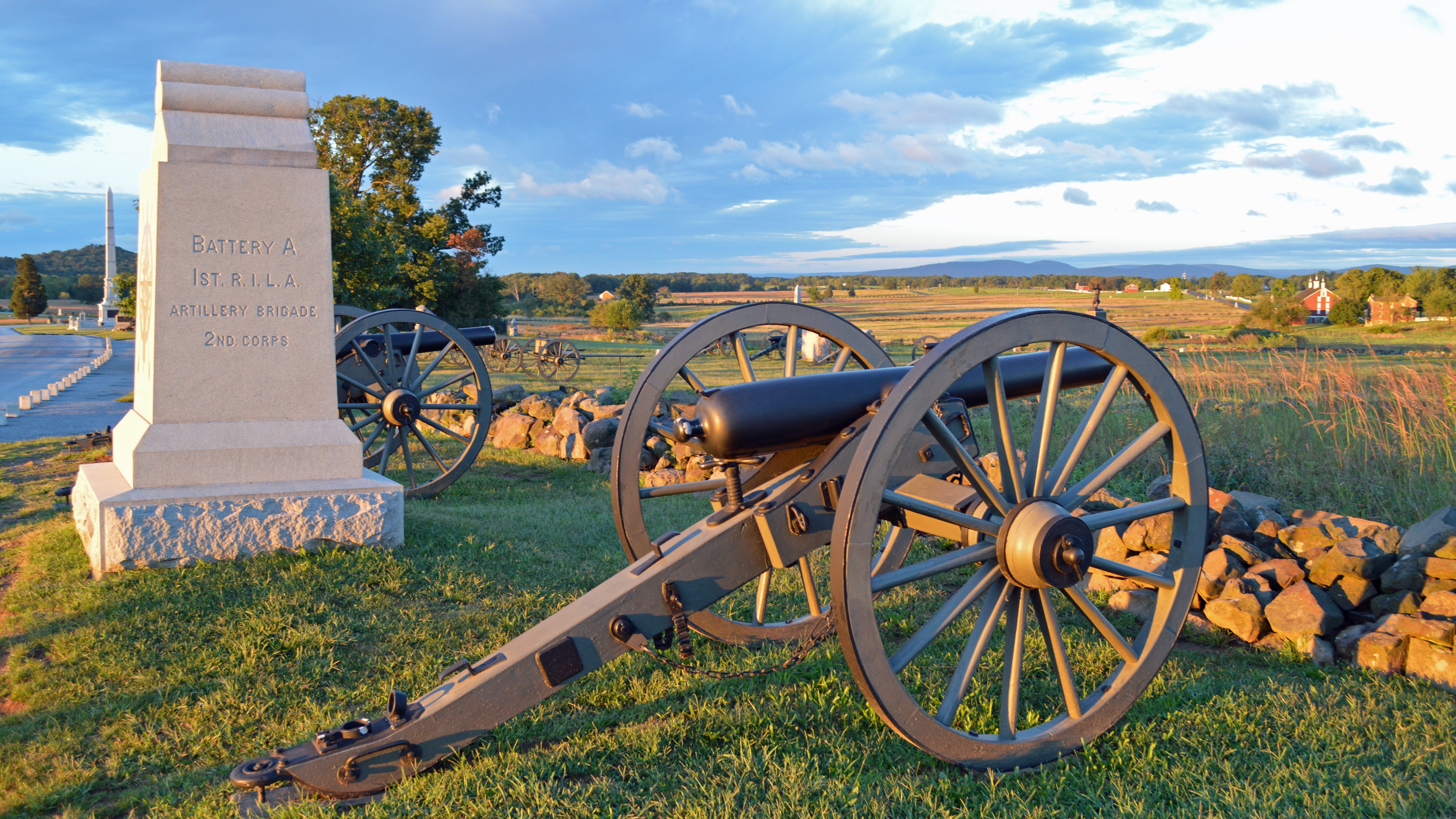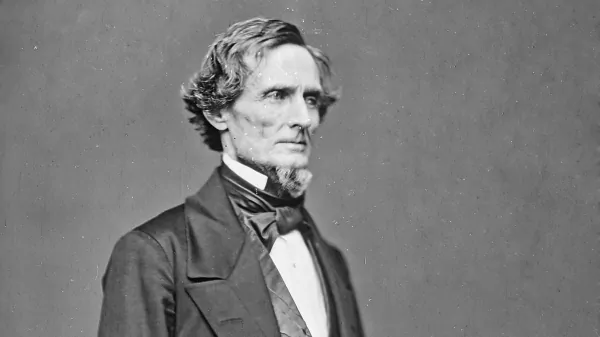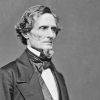The Battle of Gettysburg was fought from July 1 through 3 in 1863.
In the summer of 1863, Confederate General Robert E. Lee launched his second invasion of the Northern states. At the same time another Confederate army was under siege and being starved into submission at Vicksburg. Lee hoped to capitalize on recent Confederate victories and defeat the Union army on Northern soil, in hopes would force the Lincoln administration to negotiate for peace. Lee also sought to take the war out of the ravaged Virginia farmland and gather supplies for his Army of Northern Virginia.
Lee’s movement north was pursued first by the Army of the Potomac, first under Major General Joseph Hooker and then by Major General George G. Meade, who replaced Hooker in late June. Lee’s army crossed into Pennsylvania in mid-June, and by June 29th had reached the Susquehanna River opposite Harrisburg and at Wrightsville. The opposing forces collided at the crossroads town of Gettysburg, Pennsylvania. On the morning of July 1st, 1863, the 8th Illinois Cavalry, part of Brigadier General John Buford’s Cavalry Division fired on the forward elements of General Robert E. Lee’s Army of Northern Virginia outside of Gettysburg. Among the casualties that day was Union Major General John Reynolds who went dangerously too far forward to personally reconnoiter the situation.
The Confederate army swept the Union army from the fields west and north of town, but were unable to secure Cemetery Hill and Culp’s Hill to the south. On July 2nd re-enforcements arrived on both sides. Lee attacked on the heights and also Little Round Top further south, but failed to dislodge the defenders. Many historians credit Colonel Joshua Lawrence Chamberlain’s, commanding elements of his 20th Maine Volunteers and the 83rd Pennsylvania, desperate repulse of the attack by Colonel William C. Oates and his 15th Alabama with being the decisive action in the battle. Chamberlain would go on to be Governor of Maine and Oates the 29th Governor of Alabama.
On July 3rd, Lee attacked the Union center on Cemetery Ridge and was repulsed in what is now known as Pickett’s Charge. Lee’s second invasion of the North ended in failure. There were heavy casualties on both sides. 3,155 Union soldiers were killed. 3,903 Confederate soldiers were killed. 14,259 Union soldiers were wounded. 18,735 Confederate soldiers were killed. 5,365 Union soldiers were missing or captured. 5,425 Confederate soldiers were captured. Lee was able to extricate the surviving elements of his army and return South. Meade did not pursue, angering President Abraham Lincoln (R) who felt that more aggressive action would have destroyed Lee. The victory, however, did lift spirits in the North where many had begun to lose hope after Confederate victories like Chancellorsville.
In Mississippi, on July 4, 1863 the surviving 30,000 men of Lieutenant General John Pembroke’s Confederate force surrendered at Vicksburg after they and the civilian inhabitants of the small Mississippi town endured a grueling ordeal in which their force along with the town were surrounded by the forces of Major General Ulysses S. Grant’s Army of Tennessee. Grant’s forces lobbed over 22,000 shells into the city during the siege. Soldiers and civilians alike dug caves to hide from the shelling. The 47 day long Siege of Vicksburg, was the culmination of a long land and naval campaign by Union forces to capture the key strategic position overlooking the Mississippi River. Confederate efforts to break Grant’s lines to get food and ammunition to Pembroke’s army failed.
Preside Abraham Lincoln recognized the significance of the town situated on a 200-foot bluff above the Mississippi River. He said, “Vicksburg is the key, the war can never be brought to a close until that key is in our pocket.” Capturing Vicksburg cut the Trans-Mississippi Confederacy from that east of the Mississippi River and opened the river to Northern traffic along its entire length.



















































